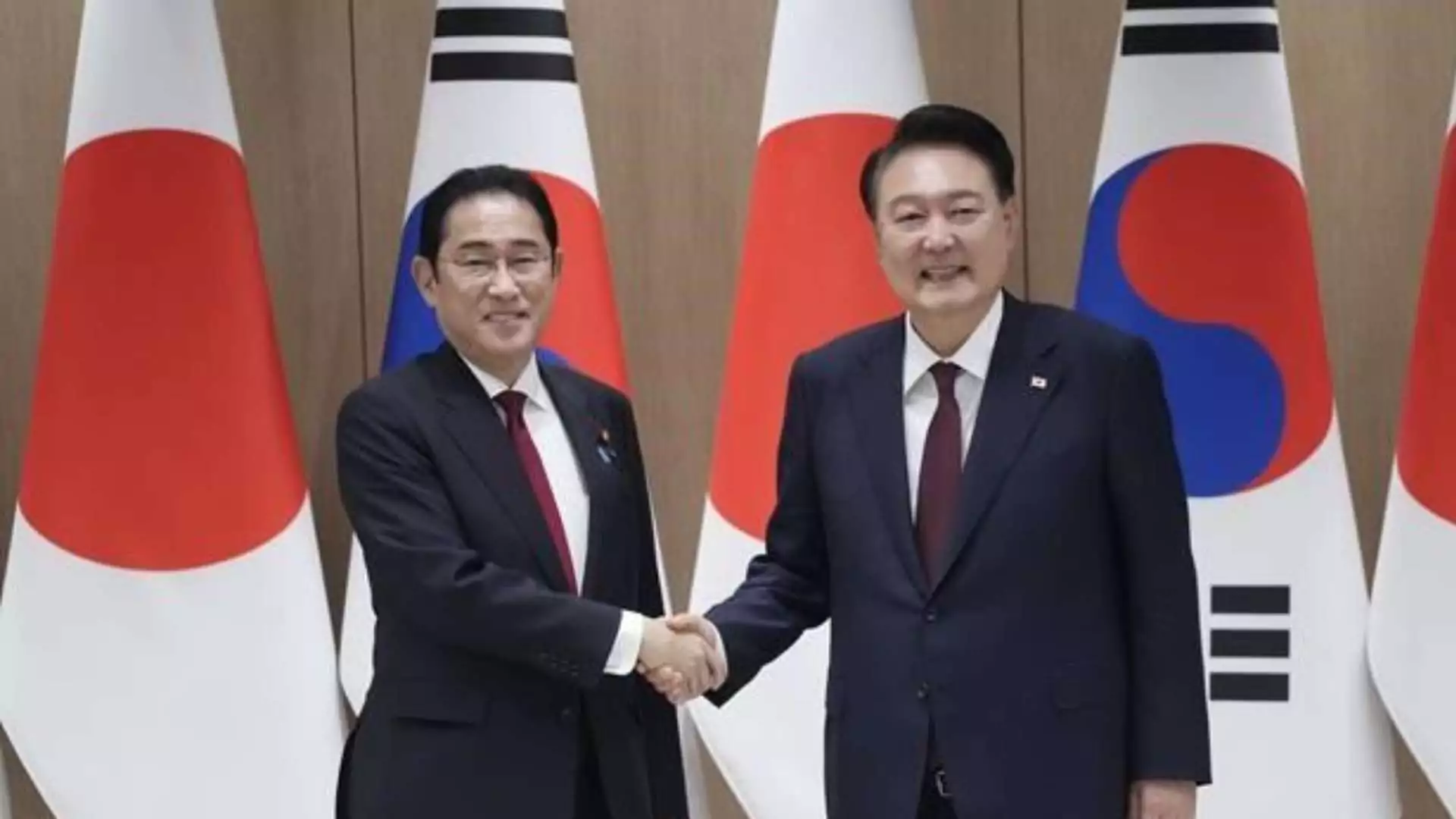As Japanese Prime Minister Fumio Kishida approaches the end of his term, his visit to South Korea is set to strengthen the ties between the two historically rival nations while casting a spotlight on the future of their bilateral relations.
Kishida’s Final Diplomatic Push
In a move aimed at concluding his term on a high note, Japanese Prime Minister Fumio Kishida is visiting South Korea this Friday. This two-day trip, arranged following Kishida’s proactive request, represents his commitment to bolstering bilateral relations with South Korea. During his visit, Kishida will meet with South Korean President Yoon Suk Yeol to review their achievements and discuss future cooperation, marking their 12th meeting since Yoon took office.
Leif-Eric Easley, a professor of international studies at Ewha Womans University in Seoul, commented on the significance of Kishida’s visit. “Prime Minister Kishida has put his personal political capital on the line to improve relations with South Korea. With President Yoon, Kishida upgraded bilateral diplomatic and security cooperation and elevated trilateralism with the United States,” Easley noted. “This farewell summit in Seoul is meant to solidify that legacy.”
The Strategic Importance of Japan-South Korea Relations
Japan and South Korea are both pivotal U.S. allies in Asia, collectively hosting around 80,000 American troops. Their cooperation is essential for U.S. efforts to fortify regional alliances in response to China’s growing influence and North Korea’s advancing nuclear capabilities. Despite their strategic importance, Japan-South Korea relations have been intermittently strained due to historical grievances stemming from Japan’s colonial occupation of Korea from 1910 to 1945.
Recent efforts to thaw relations began with South Korean President Yoon’s controversial move in March 2023 to address compensation issues for Koreans forced to work for Japanese companies during the colonial period. Kishida’s expression of sympathy for these victims, although stopping short of a direct apology, marked a significant step in improving ties. The withdrawal of economic retaliatory measures from both countries further signaled a thawing of relations.
Domestic Backlash and Political Challenges
Yoon’s decision to create a South Korean corporate fund for forced labor victims without Japanese contributions faced backlash from his domestic critics. Han Min-soo, a spokesperson for the main liberal opposition Democratic Party, argued, “If President Yoon is truly the president of the Republic of Korea, he must not let the visit become an occasion to advertise Kishida’s achievements. Our people will no longer tolerate the Yoon Suk Yeol government undermining national interest with a subservient diplomacy toward Japan.”
Despite these criticisms, Yoon has maintained that improving ties with Japan is essential due to shared strategic challenges. These include the intensifying U.S.-China rivalry, North Korea’s nuclear ambitions, and vulnerabilities in supply chains. Japanese Chief Cabinet Secretary Yoshimasa Hayashi emphasized that Kishida’s visit will be a critical opportunity to discuss further bilateral cooperation in a challenging strategic landscape.
Future Prospects and Political Implications
Although no major announcements are anticipated following the Kishida-Yoon meeting, there is keen interest in whether Kishida will make any statements that could help Yoon address domestic criticisms of his Japan policy. Easley suggested that a reconciliatory gesture from Kishida could benefit both the outgoing prime minister and Yoon. “If Kishida offers a reconciliatory gesture on history issues during his visit, he could garner goodwill that would be an asset to Japan’s next leader and also help Yoon address domestic critics of his cooperative approach toward Tokyo,” Easley said.
With Kishida not seeking re-election and the Liberal Democratic Party set to choose a new leader on September 27, the future direction of Japan-South Korea relations will depend on his successor. Leading candidates include former Environment Minister Shinjiro Koizumi, known for his visits to the controversial Yasukuni Shrine, and former Defense Minister Shigeru Ishiba, whose strong military comments could affect relations with South Korea.
Choi Eunmi, a Japan expert at the Asan Institute for Policy Studies, highlighted the potential challenges ahead. “If Shinjiro Koizumi wins the race, he will likely maintain Kishida’s strategic external policies, including toward South Korea. But whether he would continue to visit the Yasukuni Shrine will be a key issue,” Choi said. “Can South Korea accept a new Japanese prime minister visiting Yasukuni Shrine? I doubt it.”
Kishida has avoided visiting the shrine during his tenure, opting instead to send ritual offerings.
In the longer term, South Korea-Japan relations could face further changes if South Korea’s liberals regain the presidency after Yoon’s term ends in 2027. The evolving political landscape in both nations will likely influence the trajectory of their bilateral relationship in the coming years.
Read More: Georgia High School Shooting: Suspect Charged With Four Felony Murder Counts




